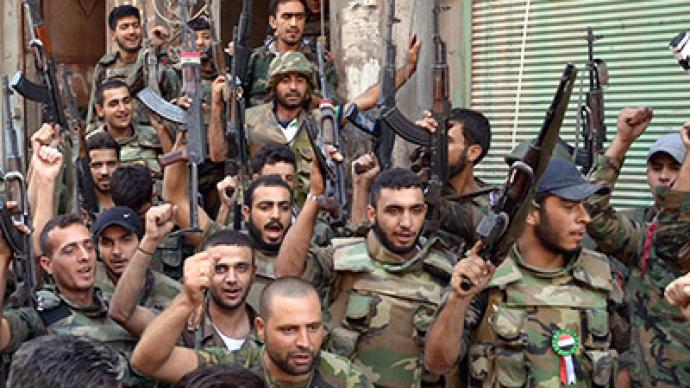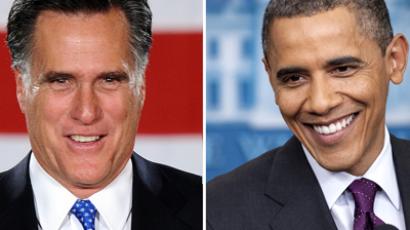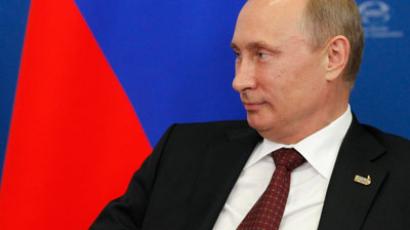Putin blames West for global chaos

The Russian leader did not hesitate to name who is responsible for sowing the seeds of disorder that is gripping many parts of the world, including in Syria.
"Our partners just can't stop,” Putin said at a meeting with representatives of one of Russia's regions. “They have already created chaos in many territories, and now they are continuing the same policy in other countries, including Syria."Commenting on the "Arab Spring" and the ongoing Syrian conflict, he said: "Our position is to help carry out changes for the better in all countries but not to try to force on them – especially by armed force – what we consider to be right.”It is important to encourage developments from within, Putin stressed.The Russian leader criticized the militant foreign policy of the West, arguing that Russia’s repeated warnings went unheeded."We did warn that prudent action was needed and that it would be wrong to try to achieve anything by force, otherwise chaos would ensue,” he said. “And what do we see today? Chaos prevails.”Russia is concerned about developments in many regions, including Afghanistan, where heroin production and drug trafficking has hit Russia and Europe. In the Middle East the situation is hardly more inspiring, with Syrian President Bashar al-Assad struggling against an armed opposition, which is said to comprise of members of terrorist groups, including al-Qaeda.The United States, which recently lost its Libyan Ambassador following a wave of anti-American violence, has not managed to avoid the consequences of its behavior. In a growing number of countries, leaders (Muammar Gaddafi of Libya, Saddam Hussein of Iraq and Slobodan Milosevich of Serbia, for example) who fell out of favor with the West have been eliminated one way or another.The new tendency for ‘regime change,’ however, has not made these countries any safer. Indeed, in many cases the violence and chaos is worse now than it was before Western foreign intervention began.To support his argument, Putin recommended Western leaders remember the lessons of history so as not to “destroy Carthage again" in their relations with weak countries."I would hate to see the events witnessed by mankind many centuries ago repeat themselves now,” he said. “The strong countries are trying to push their rules and their moral code on weak countries, without taking into account the history, traditions and religion of a particular country."The Russian leader then mentioned what he said was “the first case of ethnic cleansing known to mankind.” "The Roman Empire not only seized and occupied Carthage, but also destroyed it completely, killed everyone and spilled salt so that nothing could grow there," Putin noted.Not only should the good things inherited from European culture be remembered, he added.In his opinion, Russia "has always been advantageously different from other countries due to its formation as a multinational and multi-religious state." Orthodoxy has always been very tolerant, he noted."The super-task is that a representative of each, even the smallest ethnic group, if he lives in this territory and is a citizen of this country, must feel absolutely equal and understand that he and his children can fulfill their most ambitious plans and have no restrictions, no limitations," he said.The Russian state had never dictated its will on anyone or pushed its rules, he noted.He stressed that what transpired during the Soviet period in Russian history could not be blamed solely on Russia because the “idea of world revolution was being forced on other territories."On the whole, "we have always respected all ethnic groups, peoples and religions inside the country and have tried to behave the same way on the international scene," he stressed."The preservation of inter-religious peace" is extremely important for Russia, said Putin, who expressed his support in working with other countries to achieve this goal.














